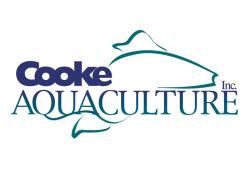Cooke Aquaculture Pacific Files Suit Against DNR
January 8, 2018 | 3 min to read

SEATTLE, Washington – Cooke Aquaculture Pacific filed suit in Clallam County Superior Court yesterday, January 4, 2018, challenging the Department of Natural Resources’ unlawful attempt to terminate the company’s longstanding lease to operate a salmon farm in Port Angeles. Cooke’s lawsuit contends that the decision to terminate the lease, which was made by Commissioner of Public Lands Hilary Franz, is not supported by the facts and will unnecessarily result in the loss of scarce rural jobs.
DNR’s lease termination, announced in a surprise filing during the late afternoon hours on Friday, December 15, just ten days before Christmas, was based on erroneous and outdated information about the condition of the facility. DNR’s decision to terminate Cooke’s lease came as surprise to Cooke in part because DNR approved the transfer of the lease to Cooke in 2016 knowing that the mooring lines extended outside of the lease area and without notifying Cooke that this might constitute grounds for termination.
“Cooke Aquaculture Pacific acquired the Washington salmon farms when it purchased Icicle Seafoods in 2016”, explained Joel Richardson, Vice President for Public Relations at Cooke Aquaculture. “The Department of Natural Resources, then led by Commissioner Franz’s predecessor, approved the transfer of those farm leases at that time and raised no concerns or objections to the manner in which Cooke’s predecessor company was managing the leased aquatic area. We can only assume that the recent decision to terminate the Port Angeles lease is based upon misinformation or a misunderstanding of the facts and history related to this site.”
Cooke representatives are hoping to meet with Commissioner Franz later this month to discuss the basis for DNR’s decision to terminate its Port Angeles lease and to further address or answer questions the Commissioner may have about Cooke’s operations.
“While we regret the need to file suit before meeting with the Commissioner, we were required to do so in order to protect the company’s legal rights,” Richardson said. “Nonetheless, Cooke believes that a fulsome dialogue with DNR, which it regards as a long-standing partner in its recently acquired Washington aquaculture program, can likely resolve any legitimate, substantive factual issues between the parties. If those issues cannot be amicably resolved by dialogue with the Commissioner then we are prepared to assert our legal rights by way of the judicial system.”
In addition to the direct impact the proposed lease termination will have on Cooke, the lease termination will also cause hardworking people to lose their jobs and face the financial uncertainty resulting from unemployment. The lease termination will also negatively impact efforts to create greater economic opportunity for those living in the Port Angeles/Port Townsend area.
The Department of Natural Resources leases land and aquatic areas for a broad variety of purposes, from timber harvesting to geoduck farming. The money generated by the Department's management of state lands generates revenue that is directed, by the constitution, primarily to the state’s schools, and such revenue is also used for enhancement of aquatic lands. In this case, DNR’s decision to terminate Cooke’s lease will therefore negatively impact DNR efforts to restore and enhance aquatic lands throughout the State.
Since 2016, Cooke has worked diligently to upgrade the Washington facilities to standards of its industry-leading farms around the world. In fact, Cooke Aquaculture has achieved Best Aquaculture Practices (BAP) certification for its North and South American salmon operations, including the farms in Washington. BAP is the world’s only aquaculture certification program that covers the entire production chain from hatcheries, feed mills, and farms to processing plants.
“Fish farming is essential to meeting the planet’s growing food needs adequately and sustainably. It’s an efficient way to provide Americans across the income spectrum with a fresh, healthy, year-round source of protein, grown with care by Cooke’s employees in Puget Sound. The United States currently imports over 90 percent of its seafood from countries like China. We believe that creating local jobs and growing fish locally should remain a priority by building on the 30-year history of sustainable salmon farming in Washington,” said Richardson.
“Given Washington’s commitment to the environment, we expect state officials to consider that farmed salmon represents one of the most sustainable protein sources available. In fact, the carbon footprint for raising fish in the ocean is six times smaller than raising cattle,” said Richardson. “Washington is home to thousands of local farms using sustainable practices to help feed the world. At Cooke, we share those values. That’s who we are and what we do.”
Source: Cooke Aquaculture
